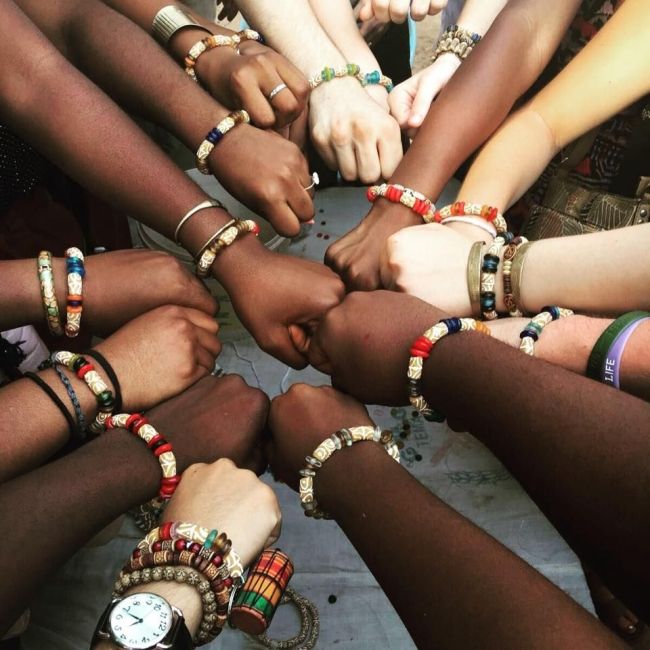Visibility and Invisibility-Being Minority in Ghana
Visibility and Invisibility is one of the many stress-evoking and emotional topsy-turvy factors intricately woven into the experience of studying abroad. This is especially so when one studies in a country like Ghana, a developing country in West Africa, where the culture, beliefs, norms, values, practices and more of the people could be quite different, depending on where one is coming from.
In Ghana, there is the tendency to be overly visible, depending on your skin color. You could be the only white person, blonde-haired, or blue-eyed individual in a sea of a largely dark skin-colored Ghanaian people. Being this visible and being in a minority for the first time, as well as being referred to as Obroni (someone who comes from overseas) is an intensity factor for a good number of international students.
Being referred to as Obroni is not only connected to the color of your skin, eyes or hair. You are also Obroni when you speak English with an American or English accent. You could therefore have the skin color of the average Ghanaian, but you may be Obroni in speech. Yes! the way you speak. This can engender stress for the dark-skinned US American or European, because they could be in the minority space AGAIN! Phew!!
Are you from Asia? Irrespective of whether you are Japanese, Thai, Chinese, or Korean, you are likely to be referred to as “Chinese” and be ready to respond to “Ni hao” even though you are neither from Taiwan nor China.
In Ghana, the tendency for certain personal values and orientations to become hidden is also quite rife. Not being a Christian or Muslim in Ghana could engender stress because these are the two mainstream religious orientations. Being LGBTQIAPK could also engender stress because heterosexuality is largely the norm in the Ghanaian society.
Being aware of these stress-evoking factors and knowing how to deal with them, especially prior to arrival, as well as having the intercultural skills and competencies to deal with these while on site, help in navigating the complex, confusing, but rich and rewarding experiences of the Ghanaian society and culture.
Kwasi Gyasi-Gyamerah, PhD
Related Posts

Exploring Ghanaian Cuisine!
When people asked what I was most excited about when preparing for my semester abroad I replied with "dance, music, and food!" In regards to food specifically, I was looking... keep reading
Arrival In Accra, Ghana: First Impressions and Observations
Who let me book a solo flight to Ghana?! This is what I thought in the days leading up to my departure. I viewed the trip ahead with much anticipation... keep reading

One Village, One History, One Craft
Vume is a small town in the Volta Region of Ghana, which is known for the art of clay pottery. When the craft was introduced, the people of Vume were... keep reading


